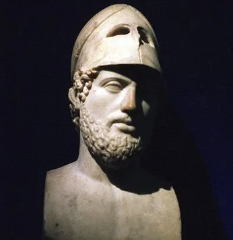Some theologians have suggested reading the Old Testament and psychologizing it to represent self aspects, while Christianizing the text to perfect it. Seeing the Old Testament as filled with imperfect wisdom is an interesting interpretation. Also, it contains incomplete truths (not to be confused with half-truths), only to be concluded and fulfilled with the Christianizing effect of Jesus, his mission on earth and Gospels (New Testament).
For instance, we don’t want people to still stone adulterers – Old Testament style – in the modern age; hence, Jesus said “let he who is without sin cast the first stone.”
Therefore, passages of the Old Testament that are eye for an eye and tooth for a tooth – or war Psalms about smashing an enemy’s head – need to be Christianized and sublimated in light of the teachings of Jesus.
Thus they move from incomplete truths to complete truths: from particular, violent and fundamentalist to something more universal, peaceful and…transcendent?
QUOTE
There’s many ways into which to read the Scriptures (Old Testament & New): and one of the ways is to interpret every character in the story…as you!
You are Barabbas and you are Paul and you’re Nathaniel and you’re Zebedee (and you are; therefore, Nebuchadnezzar)…to see them as psychological aspects of the self. Which is a really powerful way to read Scripture.
So when…if you do find yourself in a Psalm reading about enemies…speaking about enemies…just remember who your enemies are, right: Jealousy, envy, pride, arrogance, vainglory…then they can be recast…and amazingly, when you recast them they are perfect reading: they’re just perfect reading, still so we re-Christianize it (the Old Testament).
QUOTE
In Daniel chapter 4, Nebuchadnezzar is given another dream by God. Daniel interpreted the dream for Nebuchadnezzar and informed him that the dream was a warning to the king to humble himself and recognize that his power, wealth, and influence were from God, not of his own making.
Nebuchadnezzar did not heed the warning of the dream, so God judged him as the dream had declared. Nebuchadnezzar was driven insane for seven years.
When the king’s sanity was restored, he finally humbled himself before God. In Daniel 4:3, Nebuchadnezzar declares, “How great are his signs, how mighty his wonders! His kingdom is an everlasting kingdom, and his dominion endures from generation to generation.”
Nebuchadnezzar continued in Daniel 4:34–37, “For his dominion is an everlasting dominion, and his kingdom endures from generation to generation; all the inhabitants of the earth are accounted as nothing, and he does according to his will among the host of heaven and among the inhabitants of the earth; and none can stay his hand or say to him, ‘What have you done?’ … “Now I, Nebuchadnezzar, praise and extol and honor the King of heaven, for all his works are right and his ways are just; and those who walk in pride he is able to humble.”
_____

